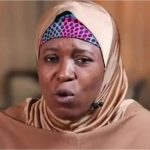The Resource Centre for Human Rights and Civic Education (CHRICED) has raised fresh concerns over what it described as a shrinking democratic space, escalating corruption, and a declining health sector in Nigeria.
Speaking at a press briefing on Monday at BON Hotel, Kano, CHRICED’s Executive Director, Comrade Dr Ibrahim M. Zikirullahi, said recent developments show that Nigeria’s democracy “is in distress.” He pointed to rising political repression, inducement-driven defections, and threats to free expression as key indicators.
Zikirullahi highlighted recent allegations by the Senate Chief Whip, Senator Ali Ndume, that presidential aides demand bribes before granting access to President Bola Ahmed Tinubu. He said the Presidency’s silence on the matter has “deepened public suspicion” and reinforced a culture of impunity.
He also raised concerns over reports that lawmakers pay between N1 million and N3 million to present motions in the National Assembly, noting that such practices erode public trust in the legislature.
CHRICED criticised the wave of political defections ahead of the 2027 general elections, saying it threatens political pluralism and could tilt the country toward a one-party system. The organisation called for urgent and transparent investigations into all corruption allegations involving the executive and legislative arms of government.
On the economy, Zikirullahi said Nigerians continue to suffer despite claims of improved inflation and a stabilised naira. He cited heavy borrowing, subsidy removal, multiple taxation, and the lack of a coherent recovery plan as factors worsening poverty and unemployment.
He warned that these conditions are pushing more young people into crime, referencing the recent abduction of six Ministry of Defence directors in Kogi State as evidence of a failing security system.
The group also sounded the alarm over the health sector, which it described as “on the brink.” Zikirullahi said only about five per cent of the national budget is allocated to health and just 36 per cent of capital funds meant for the sector were released. He noted that the ongoing nationwide doctors’ strike has further crippled services.
At the briefing, CHRICED reviewed the implementation of the Free Maternal and Child Health (FMCH) Law in Kano State. Zikirullahi said effective implementation of the law would significantly reduce maternal and child deaths.
He added that, with support from Misereor of Germany, CHRICED has developed a costed action plan, trained community monitors, empowered journalists, distributed 4,000 simplified copies of the law across 44 local government areas, and launched radio campaigns to sensitise citizens.
Mrs Hannelore Henn-Sories, a representative of Misereor, commended CHRICED’s commitment to civic education and governance reforms and reaffirmed support for improved maternal and child health services in Kano.
CHRICED called on civil society organisations, religious and traditional leaders, the media, and citizens to resist attempts to silence dissent and demand accountability from leaders at all levels.
Zikirullahi urged the federal government to halt excessive borrowing, invest in job creation, strengthen the health sector, and uphold democratic rights, saying Nigeria stands at a “critical turning point.”






